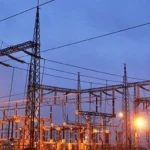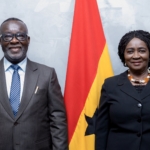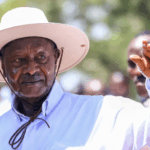
Executive Director of the Africa Sustainable Energy Centre (ASEC), Ing. Justice Ohene-Akoto, says Ghana’s energy access rate has seen significant progress, reaching nearly 90 per cent, the second-highest in West Africa.
Speaking on JoyNews’ Market Place on Tuesday, October 21, he said the country’s performance places it ahead of most regional peers in electricity access, though more remains to be done to achieve full universal coverage.
“When you look at the sub-region, we are the second, just behind Cape Verde, who has about 98% so it is improving,” Ing. Ohene-Akoto noted.
“In 2018, I was in Italy for the World Energy Week, and I engaged the Moroccan and then the Egyptian minister. By then, universal energy access, they were not too sure about it. But today, Egypt, Algeria, and Morocco have universal energy access.”

He revealed that ASEC’s latest Energy Outlook report explores lessons from North African countries that have achieved universal access within a relatively short period.
These lessons, he said, could help Ghana chart a sustainable path toward full electrification.
“So basically, they did a lot of hybrid model. I always say that when it comes to Africa, we are talking about a direct transition. But then every region has its own peculiar needs.
“So Africa needs a hybrid approach. We have to find our way to make our oil and gas sustainable by investing in carbon technologies and then also expanding our renewable energy access as well,” he explained.
Ing. Ohene-Akoto cited Morocco’s example, describing how they invested heavily in rural electrification and large-scale renewable energy projects, even developing the capacity to export power to Europe.
“They took it as a national project, with all their minds, their hearts and hands on deck, and then they were able to do it. So these were some of the projects that they rolled out within a short time that they’ve been able to reach universal energy access,” he added.


